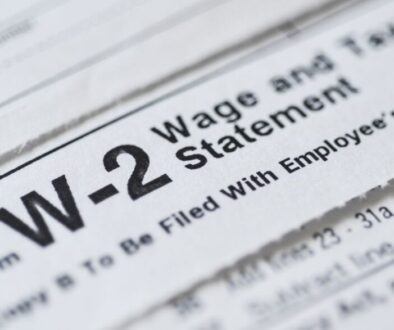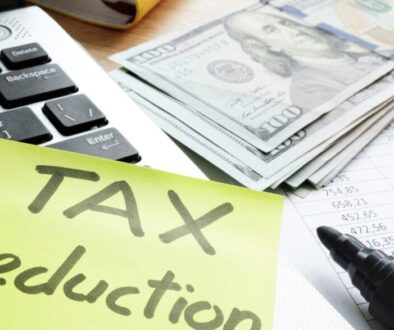When Can I Start Filing Taxes?
Table of Contents
When Can I Start Filing Taxes?
Filing taxes is an annual obligation that many individuals and businesses face, and understanding when to start this process is crucial for compliance and financial planning. The tax season can often be confusing, with various deadlines and requirements depending on your personal situation.
In this article, we will explore the timeline for filing taxes, the factors that influence when you can start, and best practices to help ensure a smooth filing experience.
Understanding the Tax Filing Timeline
The Tax Year Defined
The tax year is typically the calendar year, running from January 1 to December 31. Most taxpayers will file their returns for income earned during this period. However, some businesses may choose a different fiscal year, which can affect their filing dates.
Key Dates to Remember
The Internal Revenue Service (IRS) sets specific dates that mark the beginning and end of the tax season:
- January 1: The start of the tax year.
- Mid-January: The IRS usually begins accepting electronic tax returns. This is when many taxpayers can start filing their taxes.
- April 15: The deadline for most individuals to file their tax returns and pay any taxes owed. If this date falls on a weekend or holiday, the deadline may be extended.
Special Considerations for Extensions
If you are unable to file your tax return by the April deadline, you can request an extension. This extension typically gives you until October 15 to file your return, but it’s important to note that this does not extend the time to pay any taxes owed.
Factors Influencing When You Can Start Filing
Types of Income
The type of income you have can influence when you can begin filing your taxes. For instance, if you are an employee, you will usually receive your W-2 form from your employer by January 31. Freelancers and independent contractors may receive 1099 forms, which are also typically sent by the end of January.
Availability of Tax Documents
Before you can file your taxes, you need all the necessary documents. This includes W-2s, 1099s, and any other relevant forms. If you are waiting on certain documents, you may need to delay your filing until you receive them.
Changes in Tax Laws
Tax laws can change from year to year, which may affect when you can file your taxes. It’s essential to stay informed about any new legislation that could impact your filing process, such as changes to tax credits or deductions.
How to Prepare for Tax Season
Organizing Your Documents
Before the tax season begins, take the time to gather all the necessary documents. This may include:
- W-2 and 1099 forms
- Receipts for deductible expenses
- Previous year’s tax return
- Any relevant financial statements
Having everything organized will streamline the filing process and help you avoid any last-minute scrambles.
Understanding Your Filing Status
Your filing status (e.g., single, married filing jointly, head of household) can affect your tax rate and eligibility for certain deductions. Understanding your status can help you determine the best time to file and what forms you will need.
Utilizing Tax Software or Professionals
Consider using tax software or hiring a tax professional to assist you in filing your taxes. These resources can help ensure that you are filing accurately and taking advantage of all available deductions and credits.
Common Questions About Tax Filing
Can I Start Filing My Taxes Early?
While you can begin preparing your tax return early, you usually cannot submit it until the IRS opens the tax season, which is typically in mid-January. However, you can organize your documents and even complete your return in advance.
What If I Miss the Filing Deadline?
If you miss the filing deadline, it’s crucial to file your return as soon as possible. The IRS may impose penalties for late filing and late payment, so addressing the situation quickly is essential.
Are There Any Exceptions to the Filing Deadline?
Certain individuals may have different filing deadlines. For example, members of the military or those living abroad may qualify for extensions. It’s important to check the IRS guidelines for specific circumstances.
The Benefits of Early Filing
Faster Refunds
Filing your taxes early can lead to quicker refunds. The IRS processes returns on a first-come, first-served basis, so getting your return in early can expedite the refund process.
Reduced Stress
By filing early, you can avoid the last-minute rush and stress that often accompanies tax season. This allows you to take your time and helps ensure that everything is filed correctly.
Increased Time for Corrections
If you file early and realize there’s an error, you’ll have more time to correct it before the filing deadline. This can help you avoid penalties and help ensure that your tax return is accurate.
Tips for a Smooth Tax Filing Experience
Double-Check Your Information
Before submitting your tax return, review all information for accuracy. This includes seeking to ensure that your Social Security number, income amounts, and deductions are correct.
Keep Records
Maintain a copy of your tax return and all supporting documents for at least three years. This can be helpful in case of an audit or if you need to refer back to your previous returns.
Stay Informed
Tax laws can change frequently, so it’s important to stay informed about any updates that may impact your filing process. Regularly check the IRS website or consult a tax professional for the latest information.
Conclusion
Knowing when to start filing your taxes is essential for compliance and financial planning. By understanding the tax timeline, preparing your documents, and staying informed about any changes in tax laws, you can navigate the tax season with confidence. Whether you choose to file early or wait until closer to the deadline, being proactive and organized will help ensure a smooth filing experience.
In summary, take the time to assess your individual circumstances, gather your documents, and understand your filing status. By doing so, you can make informed decisions about when to file your taxes and maximize your potential refunds.




